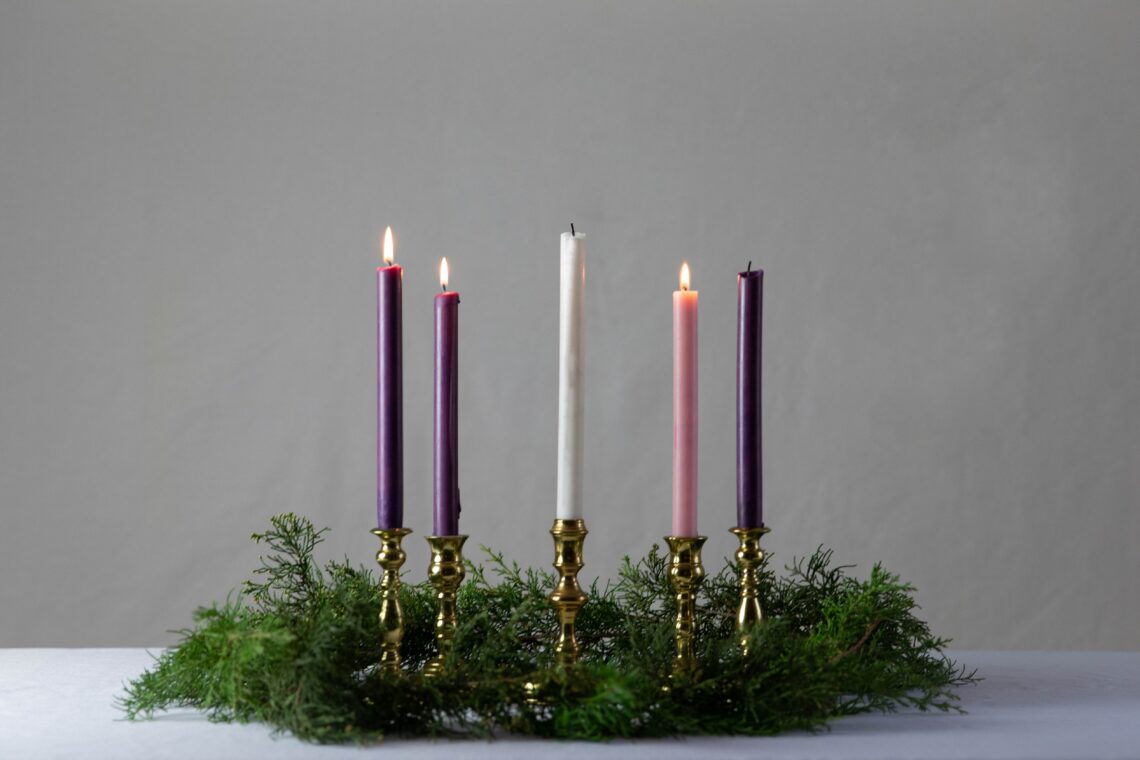
Advent FAQ
What is Advent? The first day of Advent marks New Year’s Day in the church year for many Christians. (Happy New Year!) The word “advent” means coming. The term is derived from “ad” meaning “to” as well as from “vent,” a form of a Latin word meaning “coming” (think of the first word in: veni vidi vici—I came, I saw, I conquered). So in short, Advent is the name of a season of the liturgical year that most Christian denominations observe as a time of waiting expectantly and preparing for both the celebration of the Nativity of Christ at Christmas and the return of Christ at the Second Coming, which could happen at any time.
When is Advent in 2021? Let’s start by talking about when Advent is not. Advent is not the twenty-four days in December leading up to Christmas on the twenty-fifth. Rather, it begins on the fourth Sunday before Christmas on a moveable schedule based on the dates of the four Sundays between the start of Advent and Christmas Day. This year Advent begins on Sunday, November 28, and ends on Friday, December 24. During these four weeks leading up to Christmas, many churches observe Advent as a season of expectant waiting, during which we prepare our hearts.
What’s the Advent wreath, and is it required? No wreath required. But it can be meaningful. The custom of using a wreath originated in Germany in the 16th century. To use a wreath, get an evergreen ring and four candles (traditionally, three purple candles and one rose taper). You can light them nightly every night during Advent—one candle the first week, then an additional candle for each successive Sunday. Or simply light one each Sunday until Christmas. You can also place a white candle in the center that can stand on its own (“the Christ candle”) to light on Christmas Day. Advent wreaths (and calendars) help us focus on the weekly and daily countdowns to the day of celebration. Each week has a different emphasis on what we find in Jesus Christ. Week one is hope; week two is love; week three is peace; week four (pink) is joy. In earlier eras of the church, the four weeks focused on “the last four things” from Revelation over which Jesus rules: death, judgment, heaven, and hell.
So, Advent is not only about preparing for Christmas? Right. We look back on the Incarnation. And we anticipate and prepare ourselves for Jesus’s earthly reign.
How do we “prepare”? Advent enters that mood of longing and waiting. So, first, we can imagine the perspective of those in the first-century Roman Empire. Two millennia ago, as Israel awaited her Messiah, Herod—the kind of guy who would order the killing of his own son—sat on a throne in Judea. He exemplified the leader of a wicked and perverse generation, serving at Rome’s will. Roman soldiers, who occupied Palestine, squashed the slightest hint of uprising with violence. Four hundred years had passed since the prophet Malachi promised the Sun of Righteousness would rise with healing in its wings. That’s a long time to wait without a major prophetic word from the Lord. Would Messiah really show up, they wondered. All creation groaned. The Advent hymn “O Come, O Come, Emmanuel,” sung in a minor key, captures the mood. Another Advent hymn is “Come, Thou Long-Expected Jesus.” Even in the title we see the longing.
And the Second Coming—how do we prepare for that?
Here are a few ways we can do so:
- Repent and turn from anything we’d be ashamed to have in our hearts and lives if we were to suddenly face our King.
- Recognize that all earthly kingdoms are poor substitutes for the rule of God and acknowledge we will fail if we look for our messiah in human governments.
- Remain alert and vigilant, expectantly awaiting his return and sharing the good news with others.
Jesus promised, “Be dressed for service and keep your lamps burning. Then you will be like servants waiting for their master to return from the wedding banquet, so that when he comes and knocks, they can open the door for him at once. Blessed are those servants whom the master finds on watch when he returns. Truly I tell you, he will dress himself to serve and will have them recline at the table, and he himself will come and wait on them. Even if he comes in the second or third watch of the night and finds them alert, those servants will be blessed!” (Luke 12:35–38).
Be blessed!




